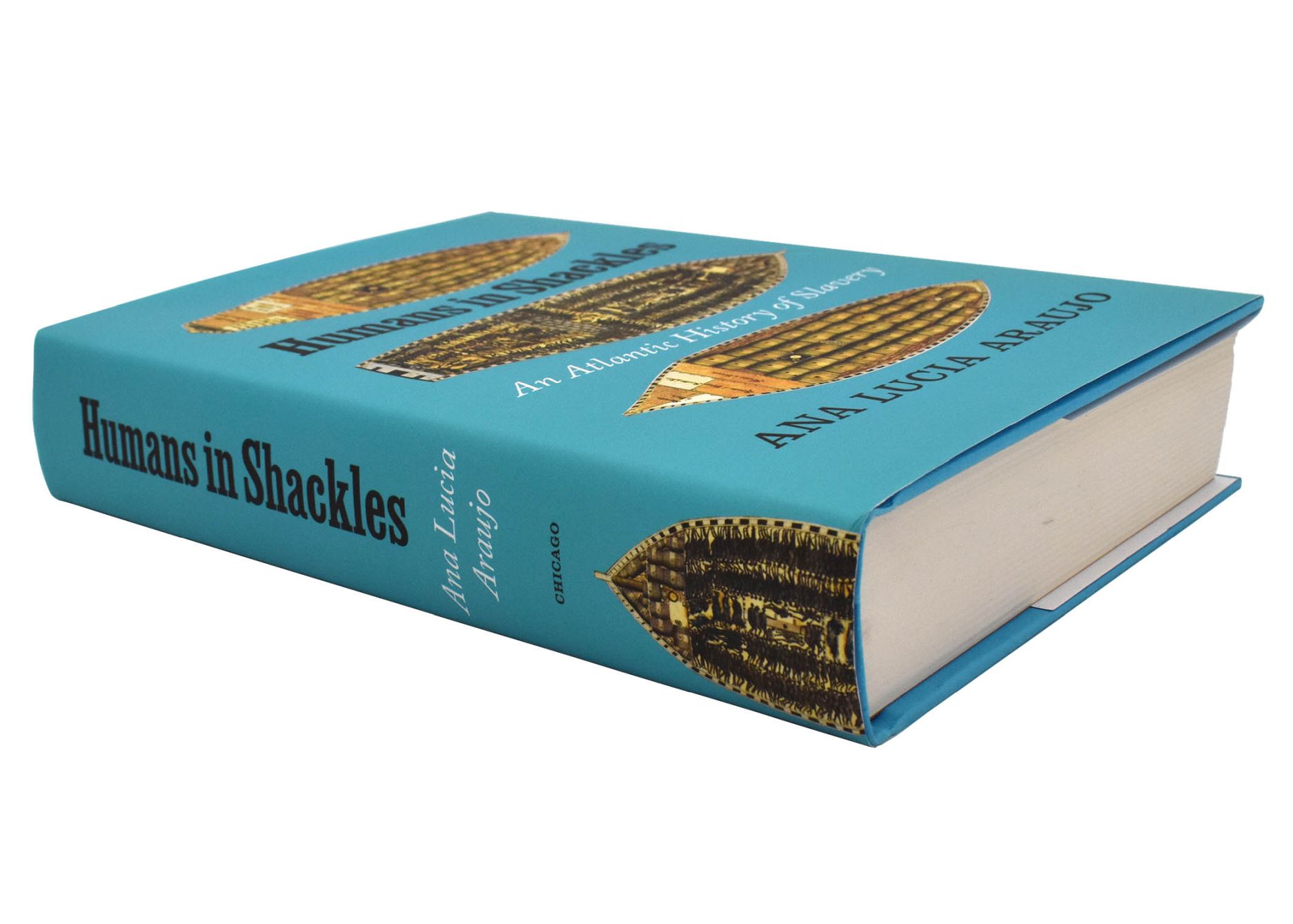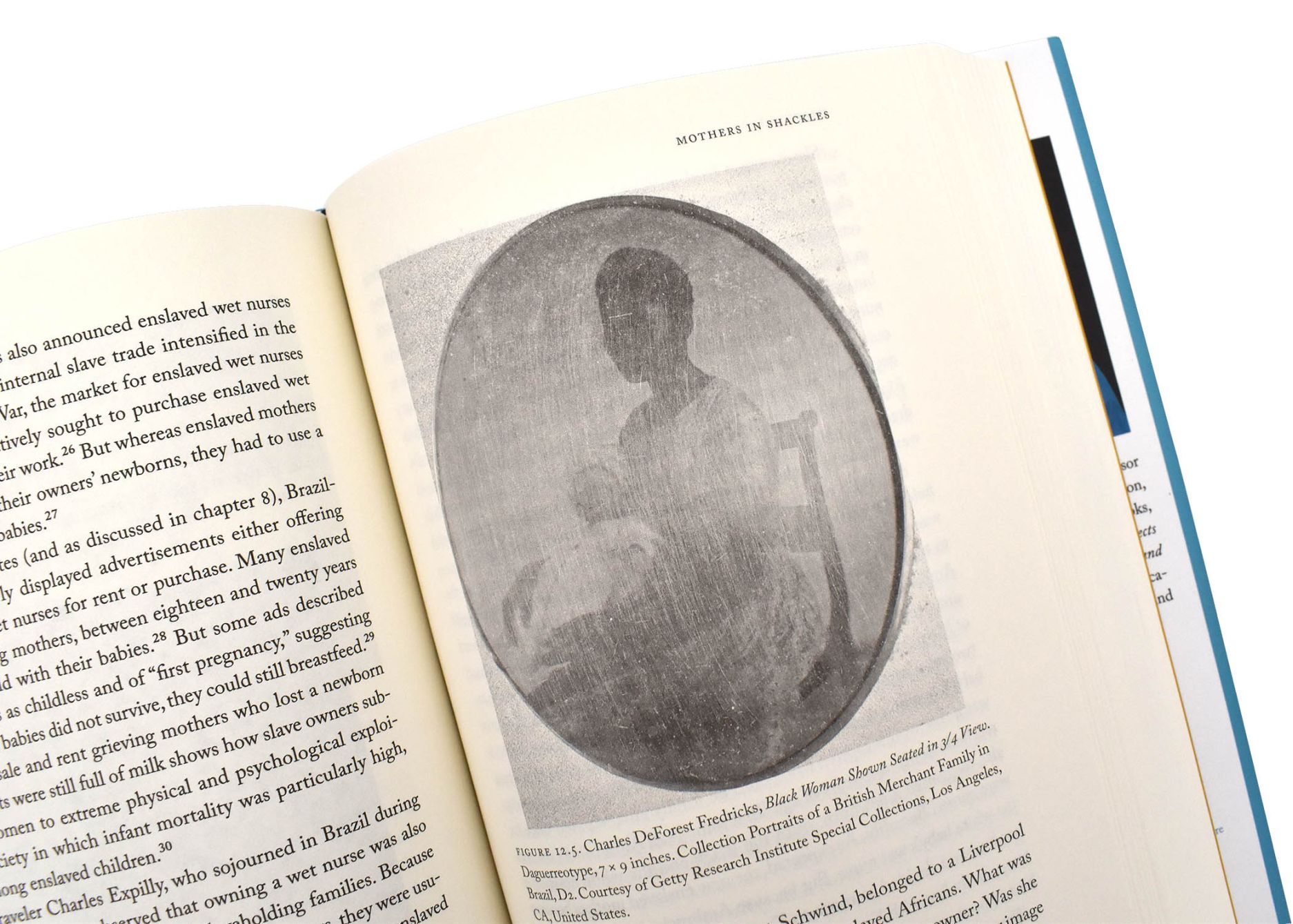Humans in Shackles
An Atlantic History of Slavery
A sweeping narrative history of the Atlantic slave trade and slavery in the Americas.
During the era of the Atlantic slave trade, more than twelve million enslaved Africans were forcibly transported to the Americas in cramped, inhumane conditions. Many of them died on the way, and those who survived had to endure further suffering in the violent conditions that met them onshore. Covering more than three hundred years, Humans in Shackles grapples with this history by foregrounding the lived experience of enslaved people in tracing the long, complex history of slavery in the Americas.
Based on twenty years of research, this book not only serves as a comprehensive history; it also expands that history by providing a truly transnational account that emphasizes the central role of Brazil in the Atlantic slave trade. Additionally, it is deeply informed by African history and shows how African practices and traditions survived and persisted in the Americas among communities of enslaved people. Drawing on primary sources including travel accounts, pamphlets, newspaper articles, slave narratives, and visual sources such as artworks and artifacts, Araujo illuminates the social, cultural, and religious lives of enslaved people working in plantations and urban areas, building families and cultivating affective ties, congregating and re-creating their cultures, and organizing rebellions.
Humans in Shackles puts the lived experiences of enslaved peoples at the center of the story and investigates the heavy impact these atrocities have had on the current wealth disparity of the Americas and rampant anti-Black racism.
During the era of the Atlantic slave trade, more than twelve million enslaved Africans were forcibly transported to the Americas in cramped, inhumane conditions. Many of them died on the way, and those who survived had to endure further suffering in the violent conditions that met them onshore. Covering more than three hundred years, Humans in Shackles grapples with this history by foregrounding the lived experience of enslaved people in tracing the long, complex history of slavery in the Americas.
Based on twenty years of research, this book not only serves as a comprehensive history; it also expands that history by providing a truly transnational account that emphasizes the central role of Brazil in the Atlantic slave trade. Additionally, it is deeply informed by African history and shows how African practices and traditions survived and persisted in the Americas among communities of enslaved people. Drawing on primary sources including travel accounts, pamphlets, newspaper articles, slave narratives, and visual sources such as artworks and artifacts, Araujo illuminates the social, cultural, and religious lives of enslaved people working in plantations and urban areas, building families and cultivating affective ties, congregating and re-creating their cultures, and organizing rebellions.
Humans in Shackles puts the lived experiences of enslaved peoples at the center of the story and investigates the heavy impact these atrocities have had on the current wealth disparity of the Americas and rampant anti-Black racism.
640 pages | 47 halftones | 6 x 9 | © 2024
History: African History, General History, Latin American History
Reviews
Table of Contents
List of Maps and Figures
Introduction: An Atlantic Cultural History
Chapter 1: Violent Encounters
Chapter 2: Catching People
Chapter 3: Trading in Humans
Chapter 4: Atlantic Crossings
Chapter 5: Discarded Lives
Chapter 6: Markets of Human Flesh
Chapter 7: Plantation Worlds
Chapter 8: Toiling in the City
Chapter 9: Women Who Fed the City
Chapter 10: Sex and Violence
Chapter 11: Creating and Re-creating Families
Chapter 12: Mothers in Shackles
Chapter 13: Resisting Bondage
Chapter 14: Ways of Congregating
Chapter 15: Rebellion across Borders
Chapter 16: Fighting for Freedom
Chapter 17: Africa’s Homecomings
Epilogue: Afterlives of Slavery
Acknowledgments
Notes
Bibliography
Index
Introduction: An Atlantic Cultural History
Chapter 1: Violent Encounters
Chapter 2: Catching People
Chapter 3: Trading in Humans
Chapter 4: Atlantic Crossings
Chapter 5: Discarded Lives
Chapter 6: Markets of Human Flesh
Chapter 7: Plantation Worlds
Chapter 8: Toiling in the City
Chapter 9: Women Who Fed the City
Chapter 10: Sex and Violence
Chapter 11: Creating and Re-creating Families
Chapter 12: Mothers in Shackles
Chapter 13: Resisting Bondage
Chapter 14: Ways of Congregating
Chapter 15: Rebellion across Borders
Chapter 16: Fighting for Freedom
Chapter 17: Africa’s Homecomings
Epilogue: Afterlives of Slavery
Acknowledgments
Notes
Bibliography
Index




